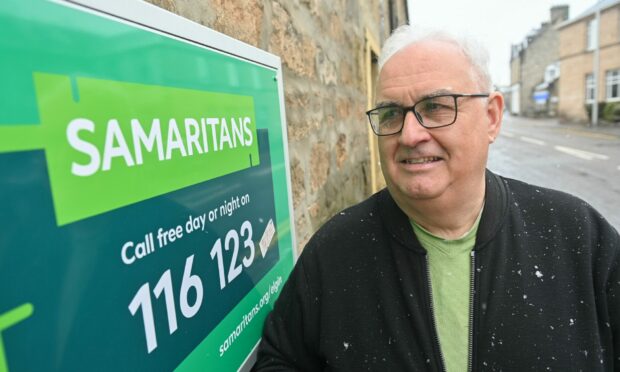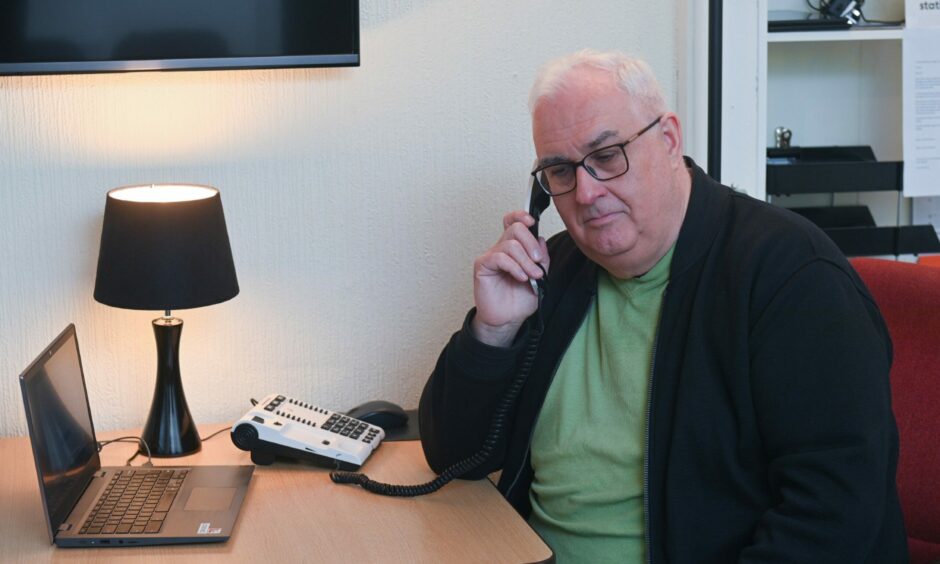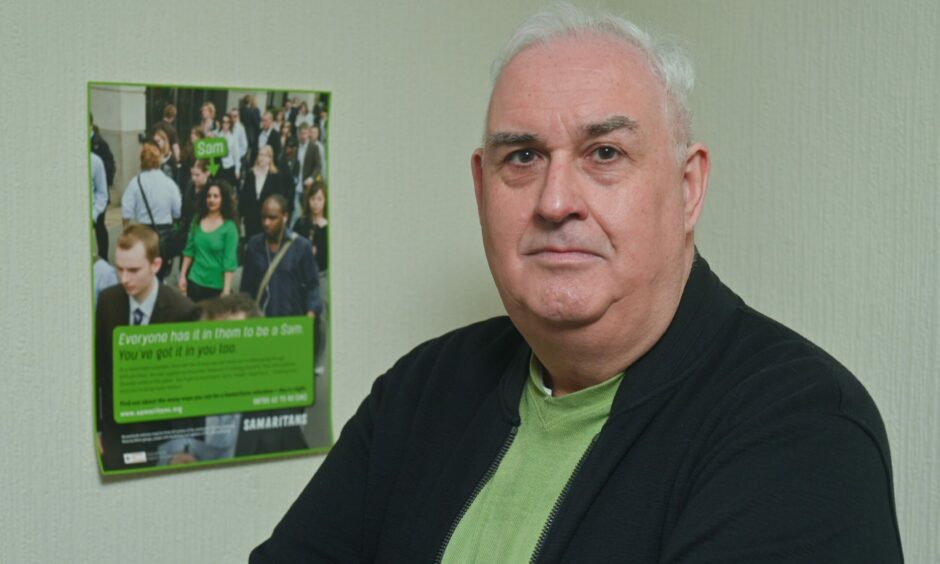Men who are struggling to cope are being urged to speak out by a retired Moray teacher recently appointed as Scotland’s regional director for the Samaritans.
John Knight, 64, understands more than many about the isolation people in rural areas can feel.
For he has a 30-year-spell as a schoolteacher in the Highlands under his belt. And he has volunteered for the Samaritans for decades.
The charity offers listening and support to people in times of need.
John retired from the chemistry classroom at Buckie High School during Covid.
Now he is the lead voice among 1,000 volunteers who help provide a free 24-hour listening service by phone or email.
Samaritans launched a fresh drive this month to raise awareness amongst men in rural communities to let them know they do not need to face things alone.
A new survey suggested fewer than half are likely to ask for support when struggling.
Speaking at the Elgin branch on Greyfriars Street, he said: “Over the years I found that kids would come and speak to me.
“It would be about things like thinking about their futures, the choices they might make, issues to do with sexuality, family issues and feeling a bit isolated.
“These are issues that teenagers deal with all over Scotland.”
Research for Samaritans’ Real People, Real Stories campaign found that two-thirds of men living in rural areas also said there are a variety of factors that would stop them reaching out for support.
The top three barriers are: stigma around mental health (18%), not knowing who to turn to (15%) and lack of awareness of the support available (15%).
John, who is based in Elgin, believes it’s vital to educate men and boys that it’s OK to speak up.
He added: “When I was working, I had male pupils who engaged with me when they were having emotional struggles in their life.
“They’d often find me when their friends weren’t around because they didn’t want anyone else to know.
‘Males in particular are still reluctant to talk’
“We do talk more about issues like mental health now than we did 20 years ago but males in particular are still reluctant to talk when something is going on.
“I was fortunate in school that, being a Samaritan, I was trained to ask questions that simply encouraged them to speak – and I listened, rather than offering advice.
“The same applied to colleagues as well. Sometimes the issues they were having weren’t huge. They were just wound up.
“But it helped to open up and share them with someone they could trust, without being judged.”
Elgin, Thurso, Stornoway, Kirkwall and Lerwick are among the most northerly of charity’s 201 branches across the UK that not only answer calls for help.
They also campaign to reduce stigma and increase understanding of suicide.
Suicide rates in some parts of remote and rural Scotland are high. Men make up over 70% of those taking their own life in Scotland.
John emphasised that it’s important that everyone knows there is always someone available for a chat.
Muddle through
He said: “People in more isolated communities often just muddle through and try to cope alone.
“Our message is that it’s better to talk early before it gets too much. And if you’re going through a difficult time, Samaritans will support you in exploring the issues.”
The Scottish Government’s minister for mental wellbeing and social care, Kevin Stewart, believes the opportunity for men to hear the stories and experiences of other men can make a difference.
Government support
He said: “The Scottish Government is pleased to support this vitally important work by Samaritans to reach out to men in rural communities, and in doing so to raise awareness of the support that is available.
“We know how powerful it can be to hear the stories of people who have had similar life experience.
“This work will help to provide real hope and reassurance to those who are struggling that they are not alone and that there is help available to them.
“The Real People, Real Stories campaign will help to reduce stigma and promote more understanding of suicide in our society, and most importantly will encourage people to talk.”
Anyone can call Samaritans for free 24/7 on 116 123, email jo@samaritans.org or visit samaritans.org for online self-help tools and information.


